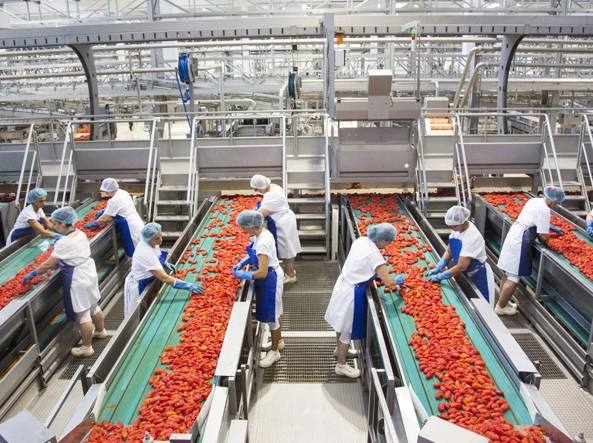Respect for your privacy is our priority
The cookie is a small information file stored in your browser each time you visit our web page.Cookies are useful because they record the history of your activity on our web page. Thus, when you return to the page, it identifies you and configures its content based on your browsing habits, your identity and your preferences.
You may accept cookies or refuse, block or delete cookies, at your convenience. To do this, you can choose from one of the options available on this window or even and if necessary, by configuring your browser.
If you refuse cookies, we can not guarantee the proper functioning of the various features of our web page.
For more information, please read the COOKIES INFORMATION section on our web page.


 “We manage to deliver Apulian tomatoes to the countries of continental Europe via an intermodal system, which uses the railway, leading to a number of benefits from an environmental point of view,” specified the company manager. “At the same time, however, all the goods destined for the British market (we are talking about around three thousand containers per year) can only leave from the ports of Salerno or Naples, because those of Manfredonia, Bari and Taranto cannot be used for our needs. This impacts both operating costs and the environment, due to the CO2 emissions caused by the unavoidable road transport to the ports of Campania. In general, Apulian agri-food exports are increasingly growing, and it is therefore essential to highlight the infrastructural challenges of the South as well as underlining the common and specific needs of Apulia, while we ask local authorities for essential support aiming at regional economic growth and promoting more sustainable business practices. An institutional intervention is urgently required that can provide concrete responses to the growing demand for intermodal transport, through policies that encourage such practices.”
“We manage to deliver Apulian tomatoes to the countries of continental Europe via an intermodal system, which uses the railway, leading to a number of benefits from an environmental point of view,” specified the company manager. “At the same time, however, all the goods destined for the British market (we are talking about around three thousand containers per year) can only leave from the ports of Salerno or Naples, because those of Manfredonia, Bari and Taranto cannot be used for our needs. This impacts both operating costs and the environment, due to the CO2 emissions caused by the unavoidable road transport to the ports of Campania. In general, Apulian agri-food exports are increasingly growing, and it is therefore essential to highlight the infrastructural challenges of the South as well as underlining the common and specific needs of Apulia, while we ask local authorities for essential support aiming at regional economic growth and promoting more sustainable business practices. An institutional intervention is urgently required that can provide concrete responses to the growing demand for intermodal transport, through policies that encourage such practices.” As regards production, for the manager of the Apulian group, there are two issues to resolve. The level of water available in Apulia in the Occhito dam is very low due to the lack of rainfall in recent months, which is worsening the drought problem. The second issue is the impact of climate change on crops. “Last year, the tomato harvest lasted until the end of October, when it usually reaches September at the latest,” said Laviola. “This is an anomalous situation that we hope will not recur this year. It is necessary to plan the collection of the raw material with the right timing to guarantee high quality.”
As regards production, for the manager of the Apulian group, there are two issues to resolve. The level of water available in Apulia in the Occhito dam is very low due to the lack of rainfall in recent months, which is worsening the drought problem. The second issue is the impact of climate change on crops. “Last year, the tomato harvest lasted until the end of October, when it usually reaches September at the latest,” said Laviola. “This is an anomalous situation that we hope will not recur this year. It is necessary to plan the collection of the raw material with the right timing to guarantee high quality.”





























